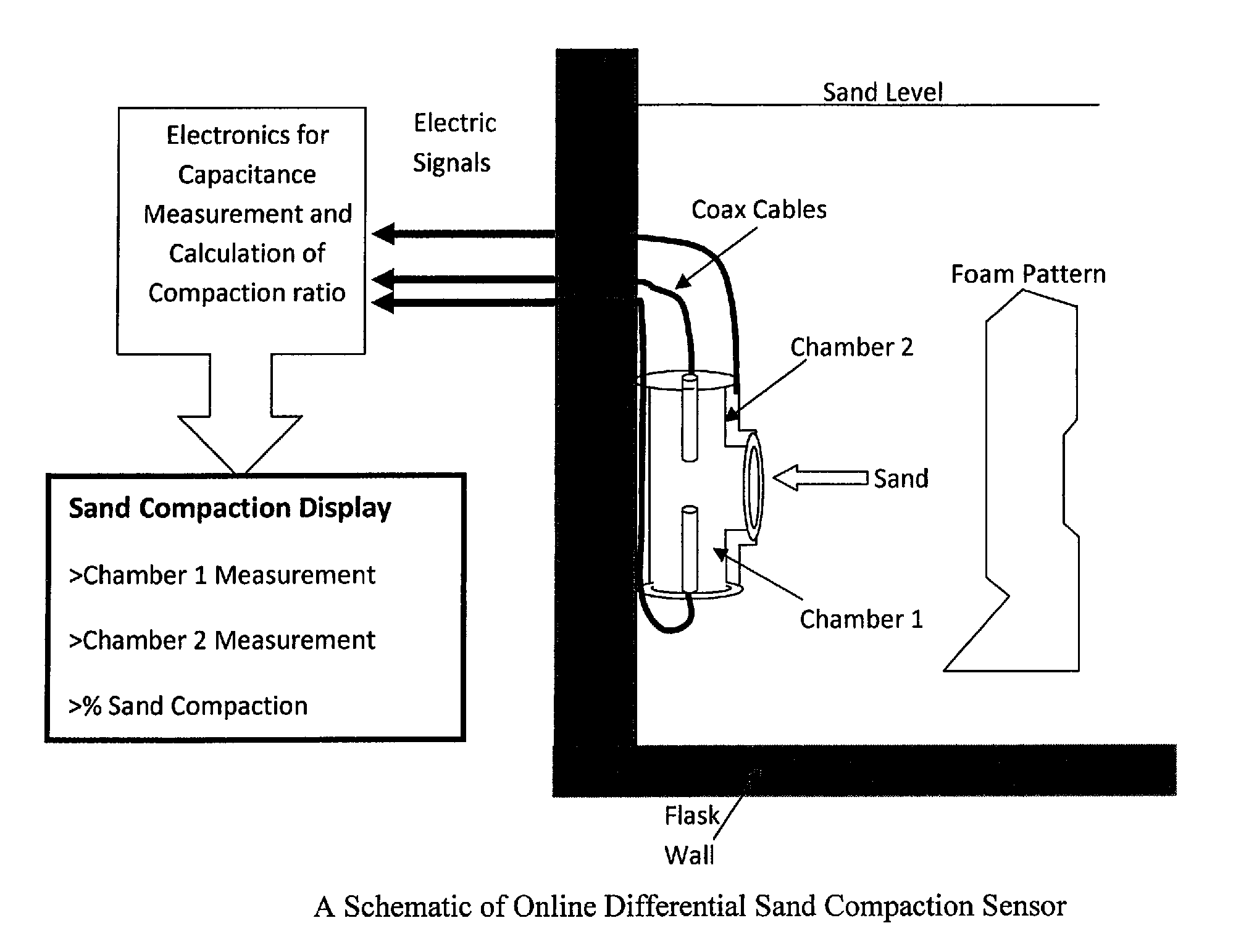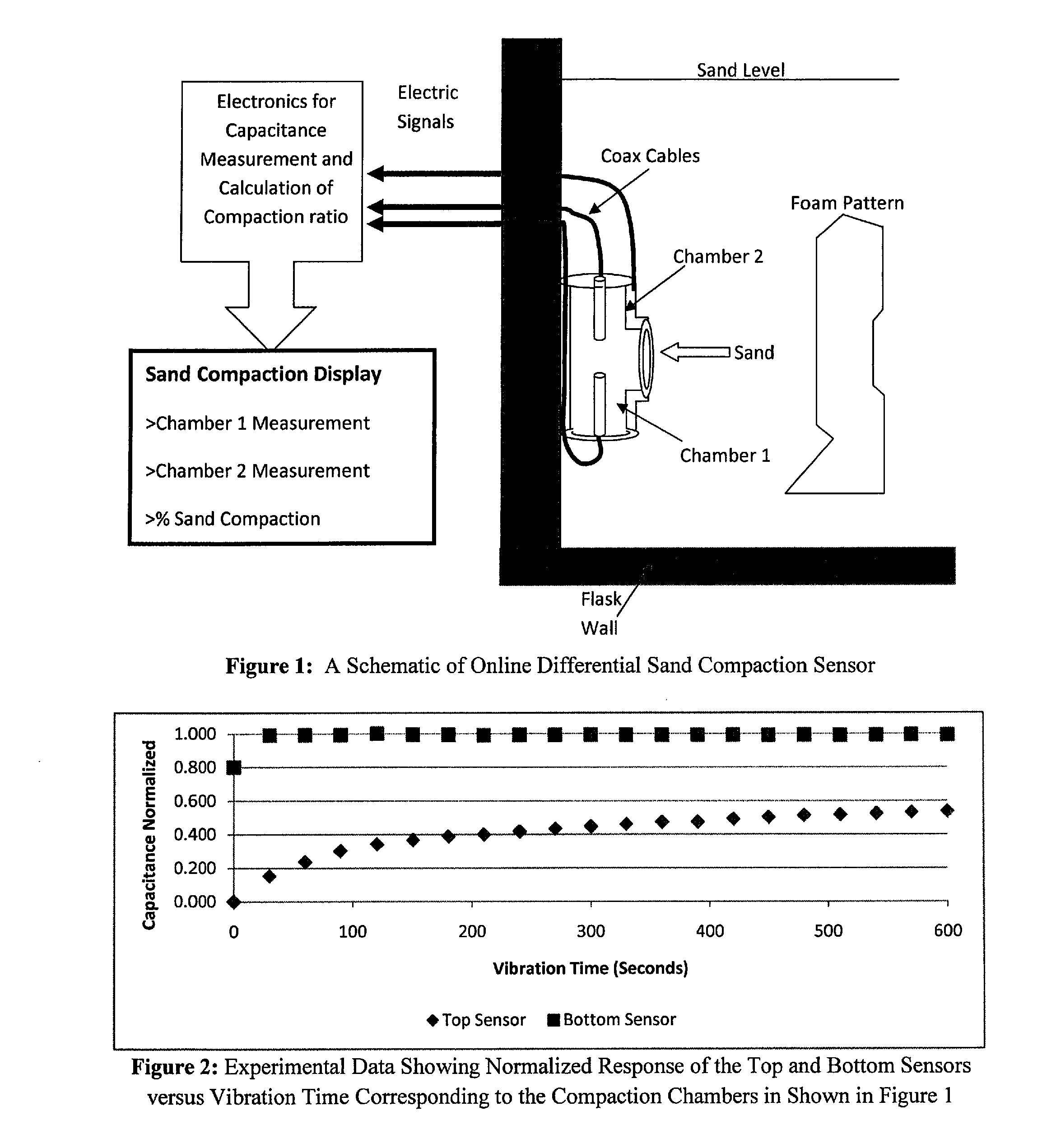Differential sand compaction sensor
a technology of sand compaction and sensor, which is applied in the direction of resistance/reaction/impedence, instruments, measurement devices, etc., can solve the problems of affecting the resulting mold properties, affecting the effectiveness of monitoring compaction, and mold may develop cracks or even collapse, etc., to achieve more effective compaction, reduce changes due to the properties of sand, and monitor the effect of compaction
- Summary
- Abstract
- Description
- Claims
- Application Information
AI Technical Summary
Benefits of technology
Problems solved by technology
Method used
Image
Examples
Embodiment Construction
[0013]In one exemplary embodiment, the present invention comprises one or more sensors used to monitor the effectiveness of sand compaction on a production line (i.e., “online”). The sensor's response measures the changes in sand compaction, which is affected by the mechanics of the vibration system such as motor and linkage wear, changes in the sand properties such as fine content and loss on ignition percentage, and environmental changes such as temperature and humidity.
[0014]In one embodiment, a sensor comprises multiple chambers where the sand is compacted, with each of these chambers having a different difficulty in resisting sand filling and compaction. The difficulty of filling and compacting the sand in these chambers can be controlled using factors such as geometry of each of the chambers and direction of the fill and compaction of sand. In the embodiment shown in FIG. 1, the sensor is comprised of two chambers. The first is oriented such that sand flows with gravity, while...
PUM
 Login to View More
Login to View More Abstract
Description
Claims
Application Information
 Login to View More
Login to View More - R&D
- Intellectual Property
- Life Sciences
- Materials
- Tech Scout
- Unparalleled Data Quality
- Higher Quality Content
- 60% Fewer Hallucinations
Browse by: Latest US Patents, China's latest patents, Technical Efficacy Thesaurus, Application Domain, Technology Topic, Popular Technical Reports.
© 2025 PatSnap. All rights reserved.Legal|Privacy policy|Modern Slavery Act Transparency Statement|Sitemap|About US| Contact US: help@patsnap.com


